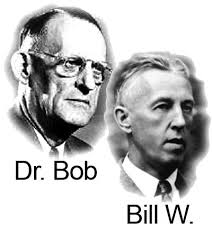 12 Step Recovery and Hypnosis
12 Step Recovery and Hypnosis
Click here for lists of and links to RI Meetings
with information on their on-line meetings during the crises.
Ask me how hypnosis can compliment your recovery with or without 12-step support
An addict’s life is a lonely one.
It matters little whether the addiction is to alcohol, narcotics, overeating, gambling, overspending, marijuana, internet pornography, home shopping network or even to another person. Addiction turns the addict’s attention inward.
Loved ones, family, friends, career and other interests fade into the background. Then they disappear entirely. It is as though the addict becomes the addiction. There is room for little else.
Fortunately, the resources to escape the despair and loneliness of addiction are readily available in Rhode Island. We have many professionals trained to handle addictions in outpatient and residential programs. But there are also free resources where addicts help themselves recover. And since they are free all that is necessary is that the addict be willing to take the first step. 12-Step programs based on the model pioneered by Alcoholics Anonymous are by far the most popular and available in our state.
The only requirement for membership
is a desire to stop__________.
All 12-step groups follow the program outlined in Alcoholics Anonymous (the AA “Big Book). The “spinoffs” just substitute a substance or behavior other than alcohol.
There are no dues or fees. And anyone is welcome provided they have a desire to break free of their addiction.
There are at least 35 varieties of popular 12 Step programs. Many of these run meetings regularly in Rhode Island. Others are available in Massachusetts or Connecticut or as on-line meetings.
Click here for a list of Rhode Island 12-step meetings
with links to their webpages.
Can anyone attend a
Rhode Island 12-step program?
Absolutely. Anyone can attend a twelve step program and are indeed encouraged to do so even just to check it out if you think you might have a problem.
However, you should know that most 12-step programs offer two kinds of meetings. Some are open to anyone (including the merely curious and supportive family members). Other meetings may be reserved only for those who seek recovery. Even these “closed meetings” don’t ask that you identify as an alcoholic or other addict: they simply ask that anyone attending has a desire to change a behavior.
Also, you don’t have to be diagnosed as having a problem to participate. You are an alcoholic, drug addict, gambling addict, sex and love addict or overeater “addict” because you say so. You don’t even have to call yourself an addict or alcoholic to participate fully. You just need to have a desire to change.
So, do you think you might, possibly have a problem? Then you are welcome to use these programs to work on a solution, either in conjunction with a therapist, physician or treatment program or on your own.
What are recovery rates
in 12-step programs?
There is a line in the Alcoholics Anonymous “Big Book” that reads “rarely has anyone failed who has thoroughly followed our path.” However, AA admits it does not have statistics that back that up. AA and the other programs are anonymous. So it is difficult to get statistics for starters.
Google AA or any of the other fellowships and you will uncover a world of controversy. But try to keep in mind that millions of people attribute their recovery from life threatening behaviors to 12-step programs. For them, as AA old-timers say, it works just fine. You will also find that recent research is tending to show 12-step programs do work better than mainstream therapists have been willing to admit.
Thomas McClelan, PhD, Treatment Director at the University of Pennsylvania Research Institute was quoted by a Hazelton Foundation article as saying, “It’s been very fashionable among psychologists to badmouth AA–without, by the way, having ever attended an AA meeting. It gets under the skin of psychologists–the idea that you’re powerless, the idea that there are catch phrases and simple things done by lay people that will be powerful tools.”
Robert Fiorentine, PhD, director of Research Training at the UCLA Drug Abuse Research Centeradds in the same article. “There has been hostility among researchers partly because of the spiritual emphasis of AA. There is still hostility, but because of the recent evidence indicating the effectiveness of the Twelve Steps in assisting in recovery, this hostility among researchers seems to be diminishing.”
Richard H. Longabaugh (now Professor Emeritus of Psychiatry and Human Behavior Research at Brown University) and his colleagues ran a study as part of a federal initiative over 20 years ago to demonstrate the effectiveness of Twelve Step Programs. They theorized that the less support a person had to stay sober in their social networks, the more effective Alcoholics Anonymous would be over long-term success than other treatment methods. And their study proved just that. Numerous other studies in the past 20 years are confirming the truth of an old AA cliché “It works if you work it.”
Longabaugh’s study also points to one of the reasons AA works so well for so many people: the support of a fellowship of people who understand what you are going through because they have been there and adopt an “all for one and one for all” attitude. As one of the AA traditions states, “Each member of Alcoholics Anonymous is but a small part of a great whole. A.A. must continue to live or most of us will surely die. Hence our common welfare comes first. But individual welfare follows close afterward.”
What about God?
There is no getting around it: 12-step programs are spiritual. Yes. They even use the G__ word. But please don’t fall into the trap of thinking 12-step recovery is not for you if you are not “religious”. Most people in 12-step groups are no more religious than the general population, perhaps even less so.
12-step programs describe themselves as spiritual not religious. What is the difference? Spirituality is an individual’s own relationship with a Power Greater Than Themselves. This might include practice of a religion, but it might not. And it is entirely private. One can be very spiritual and not have any formal idea of what God is or if there is indeed a God at all and not be a member of any organized religion. In fact, people in 12-step recovery almost never bring their particular idea of God into their fellowships. You can find a Jewish Gambling Addict can sit in meetings happily next to a Roman Catholic Gambling Addict and they can go out for coffee after the meeting with their friend an Atheist Gambling Addict who considers Nature her “Higher Power” and they all get along just fine.
Same holds true for politics and any other issue that might divide people. The people in 12-step programs unite around a common focus: recovery from their addiction.
So, please don’t rule out 12-step programs and let lack of (or even hostility to) religion be a barrier. I have a client with years sobriety in AA who used her dog as her higher power. She felt it was the only thing that ever loved her. Several clients use nature. All work just fine once you are willing to change.
Here are steps of recovery as developed by Bill Wilson and Dr. Bob Smith, co-founders of Alcoholics Anonymous.
The 12 Steps of Recovery*
- We admitted we were powerless over alcohol (substitute drugs, food, gambling, sex, love or any other addictive substance or behavior)
that our lives had become unmanageable.
Came to believe that a Power greater than ourselves could restore us to sanity.
3. Made a decision to turn our will and our lives over to the care of God as we understood Him.
4. Made a searching and fearless moral inventory of ourselves.
5. Admitted to God, to ourselves and to another human being the exact nature of our wrongs.
6. Were entirely ready to have God remove all these defects of character.
7. Humbly asked Him to remove our shortcomings.
8. Made a list of all persons we had harmed, and became willing to make amends to them all.
9. Made direct amends to such people wherever possible, except when to do so would injure them or others.
10. Continued to take personal inventory and when we were wrong promptly admitted it.
11. Sought through prayer and meditation to improve our conscious contact with God as we understood Him, praying only for knowledge
of His will for us and the power to carry that out.
12. Having had a spiritual awakening as the result of these steps, we tried to carry this message to alcoholics and to practice these principles in all our affairs.
Your Next Step?
If you have a problem that doesn’t seem to go away (alcohol, drugs, overeating, internet compulsion, obsession over a person, compulsive spending) or are affected by someone with an addiction whether in the present or the past (parent, spouse, boyfriend, girlfriend, child, sibling, even co-worker), consider checking out the appropriate 12-step program. Keep an open mind. You may be surprised at how healing it can be just to be in a room with people who know exactly what you are going through.
And, by the way, remember there are no dues or fees for 12-step membership and these are anonymous programs. You have nothing to lose by checking them out and perhaps very, very much to gain.
And, yes, hypnosis and hypnotic coaching can help. They can help in early sobriety and long-term recovery.
But AA isn’t the Only Way
to Get and Stay Sober
in Rhode Island
and Southeastern Massachusetts
Click here for a look at Smart Recovery – another FREE group approach completely compatible with Hypnosis and Hypnotic Coaching.
*Modified from Alcoholics Anonymous (The AA BIG BOOK), original copyright 1939.
